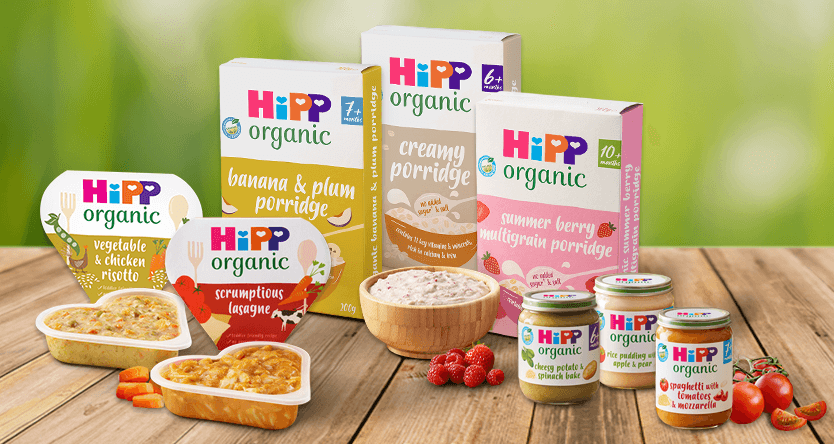
As we head into the final week of our ‘Love Your Sole’ campaign we look back on all we have discussed over the past month. Starting off with national storytelling week, followed by children’s mental health and recently discussing how to teach children self-love. This week, to round off our busy month we wanted to bring to light not just a nourished ‘sole’ but the importance of a nourished body too. As a footwear company our focus has always been on those fast-growing feet, but let’s face it, our children are like string beans growing at an alarming rate. It is because of this rapid growth rate that their bodies can be more susceptible to changes in nutrition and environmental exposure. In this blog we discuss organic foods, farming, and brands, along with a few tips on how to make sure fussy eaters get their daily greens.
What are organic foods and why are they better for kids?
Organic foods are grown without using hazardous chemical fertilizers, pesticides, and other harmful substances. These environmentally friendly foods are grown using natural methods and are GMO-free.
One of the reasons why eating organic food is so important for children is because it helps them gain a taste of real food. Studies suggest that along with carrying fewer pesticide residues, fresh organic produce may supply more micronutrients. Examples of these are vitamin C, iron, magnesium, and phosphorus, as well as more protective anthocyanins. These nutrients can be beneficial in preventing dangerous diseases like heart disease, blood pressure problems, migraine, diabetes, and cancer.
Why is organic food better for the environment?
Organic farming is better for the environment because it involves less soil erosion, fewer pesticides, less pollution, and decreases nitrate leaching into underground and surface water. It is because of this that birds, animals, and people who live close to organic farms also benefit. This way habitats and food webs are not disrupted or destroyed.
5 Benefits Of Eating Organic Food and Supporting Organic Farming
- Avoiding possible health risks from pesticides.
- Organic food is often fresher because it doesn't contain preservatives that make it last longer.
- Organic farming tends to be better for the environment.
- Organically raised animals are NOT given antibiotics, growth hormones, or fed animal by-products.
- Organically grown foods contain many vitamins and minerals needed for body nourishment and disease prevention.
What if my children are fussy eaters?
It is all good and well discussing the benefits of organic food for kids however, we all know as parents mealtime is not always that simple. Here are a few ways we think we can help:
- Get your kids to help prepare the food. Being proud of what they have made and selected may increase their willingness to eat the meal.
- If you have a garden or even a plant pot, let your kids pick one vegetable and grow it themselves. The most rewarding part will be the whole family enjoying a meal grown by them.
- Talking to them about the good things those foods will do to their bodies. Sometimes understanding the benefits of something makes you more willing to try it out.
- Making vegetables fun. Regular spinach and carrots just aren’t as good as ‘super strength spinach’ and ‘laser vision carrots.’
- Take your kids grocery shopping and let them pick one new fruit or vegetable each time.
- Sometimes kids just need a little but of evidence. Try blending sneaky fruits and vegetables into their favourite foods. Examples of this can be chickpea brownies, avocado chocolate pudding and lentil spaghetti Bolognese. A great account to follow for a little inspiration is NYT best-selling cookbook author, Carleigh Bodrug. Her fun social media accounts have loads of organic tasty recipes your little ones would love!
What if I don’t have the time for meal prep?
As parents ourselves, we understand sometimes there just aren’t enough hours in a day. Between work, school, and running a household, meal prep often takes a back seat. Here are a few brilliant food companies who have done the hard work for you. Better yet they are all organic and share very similar values to Pip and Henry in terms of wanting the best for both our children and the environment.
HiPP
As parents ourselves, we understand sometimes there just aren’t enough hours in a day. Between work, school, and running a household, meal prep often takes a back seat. Here are a few brilliant food companies who have done the hard work for you. Better yet they are all organic and share very similar values to Pip and Henry in terms of wanting the best for both our children and the environment.
Organix Food
Founded in 1992, Organix is on a mission to create tasty and nutritious children’s food from organic ingredients. They offer a wide range of products which include baby meals, finger foods, and tasty treats, all with a ‘no junk promise.’ In addition to this, all their packaging is recyclable, and they ensure that their entire supply chain is doing its bit to cut carbon, water, and waste.
Ella’s Kitchen
Founded in 2006, Ella’s Kitchen offers delicious baby foods along with table activities, recipes, and mealtime tips. According to studies babies who explore food with their senses are more likely to grow up as happy eaters. It is due to this that all food made by Emma’s kitchen looks lovely, smells supper, and sounds scrummy!
Lune and Wild
Cousins Lara and Nadia are here to help you save time without compromise. With a range of finger foods, snacks, weaning foods, and toddler meals, Lune and Wild are here to offer deliciously different, handmade food made with only organic, seasonal, and fresh ingredients.
Mammamade
Created by Sophie Baron, Mammamade are here to share the load and the love. They have a wide selection of organic meals, from pastas and curries to purees and pancakes! There is also a great Mammamade podcast for parents. Each episode is thought of as a mini guide to surviving parenthood on the go.
We hope that over this last month our ‘Love Your Sole’ campaign has helped and encouraged parents to deal with issues such as children’s mental health, physical health, and overall well-being. If you missed any of our previous topics discussed over the past few weeks, they are all available in the link below.











